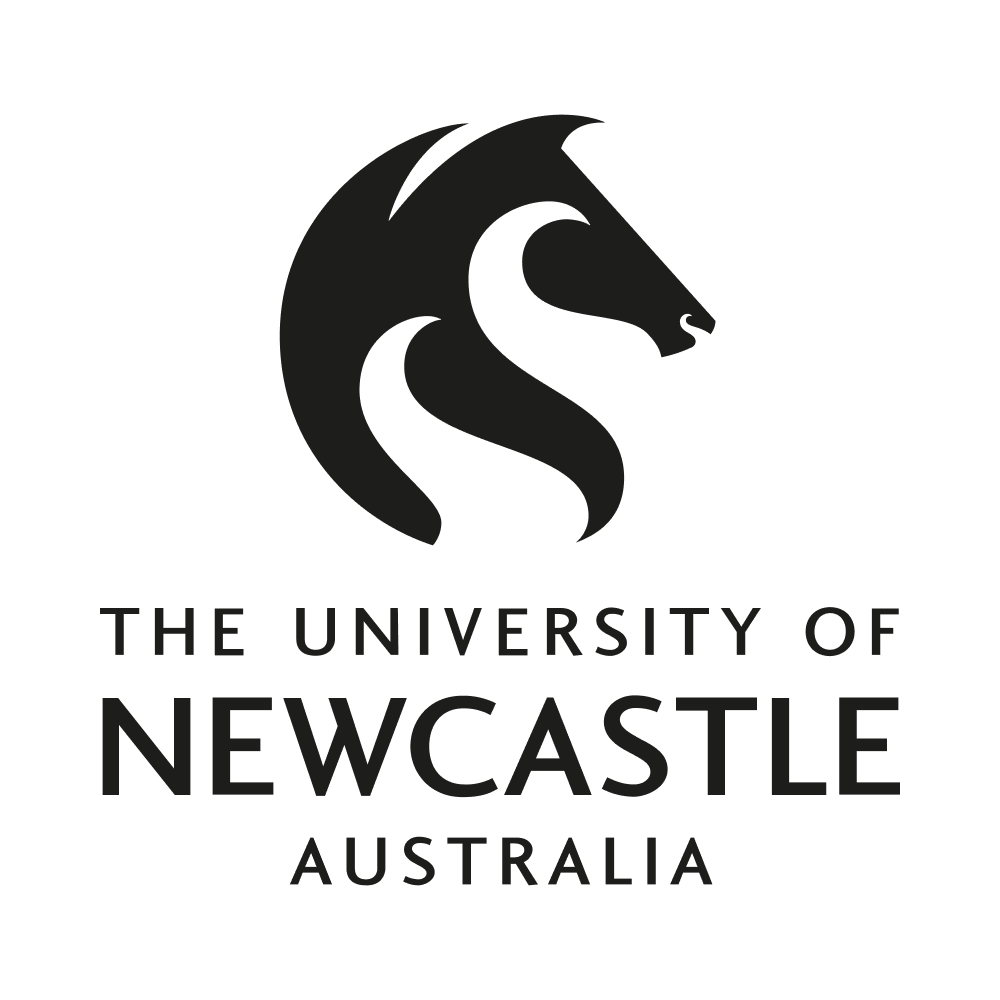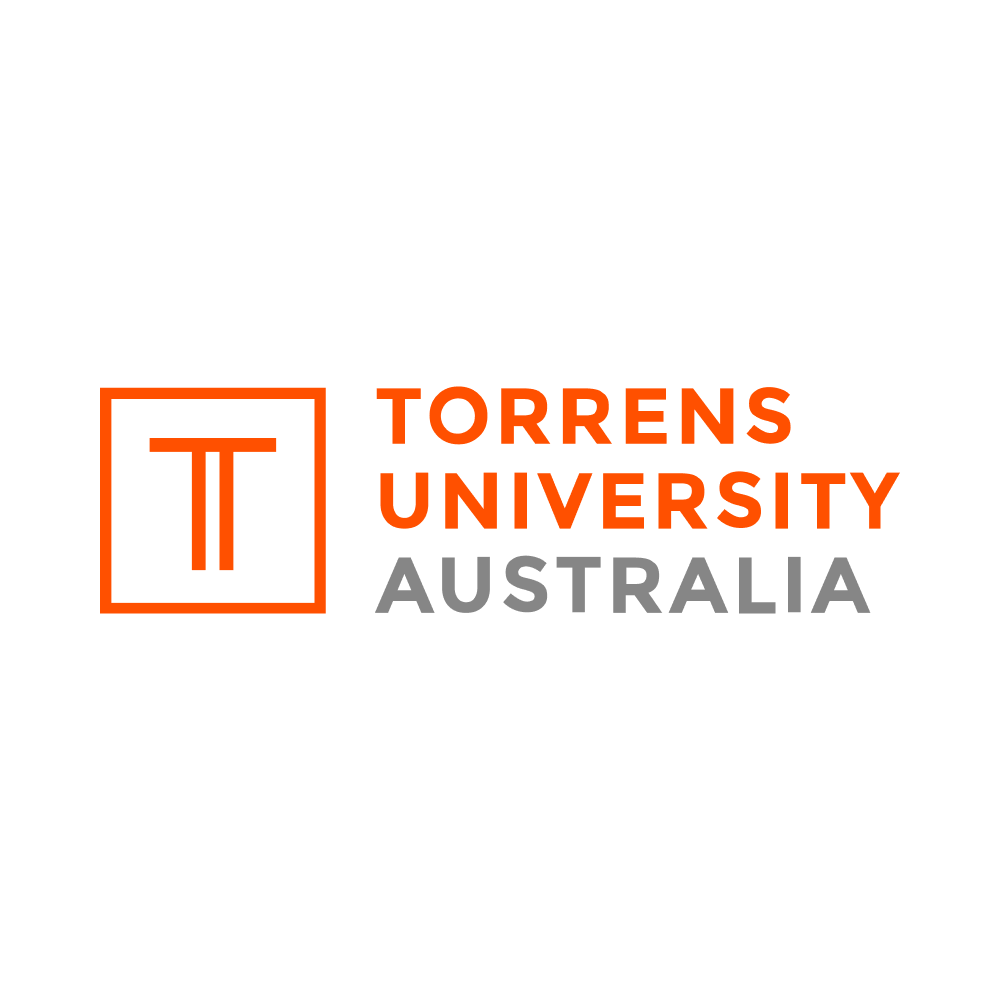In This Article
- Australia’s future job market for business professionals
- What are careers for the future?
- 7 emerging business careers for the future
- Do jobs of the future offer competitive salaries?
- Future-ready skills to develop
- How to prepare for a future-ready career without experience
- Postgraduate business courses in emerging fields
- Shape your future success with postgraduate study

Many business professions are evolving and emerging as rapid developments continue to impact the professional landscape. These roles may become more prominent in the coming years as organisations adapt to shifting market demands and new workforce needs. It can be helpful for business professionals to understand which jobs will be in high demand to help better position themselves for the future.
Read this article to explore what Australia’s job market may look like for business professionals in the future, discover examples of emerging business careers and learn which skills are valuable for tomorrow’s labour force. You’ll also learn how postgraduate study can support your journey towards becoming a future-ready business professional.
Australia’s future job market for business professionals
The business landscape in Australia is evolving rapidly, driven by technological advancement and persistent skills gaps across industries. According to the World Economic Forum’s (WEF) Future of Jobs report in 2025, 65 per cent of Australian employers identify skills shortages as a major business challenge over the next five years. If this issue persists, it can lead to a significant shortfall of skilled workers.
This outlook is further supported by findings from the Future Skills Organisation’s Workforce Plan 2025 report, which projects that Australia could gain up to 450,000 skilled professionals in finance, technology and business by 2030. However, current workforce strategies are unlikely to meet this future demand, with a potential deficit of almost 250,000 workers by the end of this decade. If left unaddressed, this concerning trend may cause challenges to business growth and innovation across the country.
In response to this national issue, many businesses are looking into building a future-ready workforce. For example, the Future of Jobs report reveals that 92 per cent of employers are planning to reskill and upskill their existing workforce to work with AI more efficiently, while 68 per cent intend to recruit new talent with AI-related skills. Meanwhile, 35 per cent of Australian workers’ core skills are expected to change in the next five years, demonstrating the growing importance for them to adapt. For business professionals, gaining insight into which careers are set to be in high demand in the near future can help them understand what skills they should develop to stay competitive and relevant in Australia’s job market.
What are careers for the future?
Careers for the future are occupations that are projected to experience significant growth or demand in the years ahead. These roles often include new jobs that didn’t exist 10 years ago and jobs that have been modified from existing ones. Many of these future jobs emerge or evolve in response to rapid technological and economic developments as well as evolving business needs. As industries adapt to these changes, organisations require talent with fresh skill sets to remain agile and competitive. Understanding these trends can help professionals align their capabilities with the changing needs of the future workforce.
7 emerging business careers for the future
Emerging business careers for the future include roles like AI specialists, AI ethics officers, data analysts, blockchain engineers and cybersecurity analysts. Beyond technical roles, there’s also a growing demand for professionals who advocate social and environmental impact, such as sustainability consultants and diversity and inclusion coordinators.
Many of these roles were either rare or didn’t exist a decade ago and they’re set to become even more prominent as industries adapt to new challenges and technologies. Find out what these top jobs for the future involve below:
AI specialist
AI specialists use AI technologies to help businesses improve operations, solve complex challenges and enhance overall growth. Their expertise in this rapidly evolving field enables organisations to streamline workflows, extract meaningful insights from data and make smarter business decisions. These professionals also play a crucial role in guiding businesses in executing AI-related ventures across diverse sectors.
Their exact responsibilities usually depend on the scope of their role, the company and the industry they work in. For example, AI specialists in retail may develop AI models that can predict inventory needs based on customer purchasing patterns, competition and seasonal trends, while those in supply chain may focus on optimising manufacturing processes and improving quality control. Other responsibilities may involve developing AI-powered tools like chatbots and virtual assistants, encouraging AI best practices throughout the organisation and tracking progress and performance of AI projects. AI specialists may also collaborate with other departments like marketing, sales and logistics to understand and convert their business needs into AI-powered solutions.
As AI adoption accelerates across Australia, the demand for skilled professionals in this field is projected to rise significantly. According to LinkedIn’s Skills on the Rise ranking in 2025, AI literacy is the fastest-growing skill in Australia, suggesting a growing need for AI specialists across industries.
If you’re looking to gain an understanding of the opportunities, capabilities and challenges of AI, you can consider taking the AI Fluency Sprint short course offered by the University of Sydney. Ideal for executives, leaders and managers who are curious about AI, this online course delves into the fundamentals of AI and how it can be leveraged within your organisation. This knowledge can also empower you to engage more confidently with key AI stakeholders both within and beyond your company.


Staying ahead in the accelerating Artificial Intelligence race requires business leaders to make informed decisions about where and how to employ AI in their business.
Delivered by Sydney Executive Plus the self-paced AI fluency sprint will help you to build an understanding of the opportunities, capabilities and challenges of artificial intelligence and engage confidently with key AI stakeholders.
- Learn from leading thinkers and industry experts at the University of Sydney and Deloitte.
- Develop real-world, jargon-free understanding of AI beyond the hype.
- Receive a University of Sydney digital badge, your personal AI fluency credential.
You may also consider pursuing a postgraduate degree in AI to better equip yourself for a long-term career in this field. For example, the University of Adelaide offers a Master of Artificial Intelligence and Machine Learning, which delves into the technical skills in machine learning and AI application design. This course covers specialist areas like deep learning and visual question answering, while also exploring the commercial, organisational and research opportunities presented by machine learning and AI. You can customise your learning through a wide range of electives, including Applied Natural Language Processing, Introduction to Statistical Machine Learning and Computer Vision.


The Master of Artificial Intelligence and Machine Learning is driven by AIML’s cutting-edge research and extensive industry links, spanning diverse international sectors - from health, medical technology, defence and security to environment and natural resources.
This degree will equip you with highly advanced technical skills in machine learning and AI application development, including in specialist areas such as deep learning and visual question answering. You will gain a firm grasp of the commercial, organisational and research opportunities presented by machine learning and AI. You will also gain a deep understanding of the disciplines’ ethical and social considerations. Lastly, the chance to gain invaluable real-world experience through a major research or industry-based project and an optional industry internship, extensive industry connections and networks.
AI ethics officer
AI ethics officers ensure that AI is developed and deployed responsibly within organisations. Their primary responsibility is to set up and promote ethical principles and best practices that foster fairness and accountability in the use of AI technologies. They may help organisations find and solve ethical challenges, such as bias, data privacy and compliance. This can help businesses harness the full potential of AI for growth, while mitigating risks to the environment and society.
Some of their key responsibilities may include developing AI governance policies and ethical frameworks, conducting risk assessments to measure the potential impact of AI-related business decisions and working with legal, security and technical teams to ensure AI systems meet the required standards. Staying up to date with evolving AI regulations is also essential, enabling these professionals to guide organisations in maintaining compliance.
AI ethics officers may represent a future-ready career as businesses increasingly rely on AI to drive innovation and growth. These professionals play a vital role as they ensure that AI usage aligns with legal and societal expectations.
If you’re looking to enhance your understanding of ethical AI practices, CPA Australia offers an AI Ethics for Modern Professionals short course, which examines the ethical considerations involved in the responsible development and application of AI technologies. You’ll learn about AI’s impacts on society, relevant regulatory frameworks and practical approaches to ensure fairness, transparency and accountability in AI systems.


Artificial Intelligence (AI) in the workplace offers exciting new business opportunities, but it must be implemented responsibly and ethically. This interactive module explores the evolution of AI, how AI works and the associated ethical issues.
This course comprehensively explores the ethical considerations essential for the responsible development and deployment of artificial intelligence (AI) technologies. You will gain a deep understanding of the intersection between AI and ethics, focusing on the societal impacts, regulatory frameworks and practical strategies to ensure fairness, transparency and accountability in AI systems. Through a blend of theoretical insights and real-world case studies, this course will equip you with the knowledge and tools necessary to navigate the ethical challenges posed by AI in the workplace.
Featuring videos, examples and real-world applications provided by industry experts and financial leaders to embed the learning and bring the content to life, you will gain the tools and techniques increasingly important in modern finance roles.
Many postgraduate degrees in AI include ethics as part of their units to complement your foundational AI expertise. For example, one of the core units in Western Sydney University’s Master of Artificial Intelligence is Artificial Intelligence Ethics and Organisations. This unit explores ethical issues surrounding AI technologies, along with relevant AI regulations and policies. Through case studies, you’ll examine how ethical principles of AI are applied in different areas, such as data governance, predictive analytics, autonomous system design and changes in labour market structures.


The Master of Artificial Intelligence will provide you with a broad range of Artificial Intelligence (AI) topics, ranging from foundations to state-of-the-art technologies and applications. You will learn how AI is changing every facet of life and society and how this change will significantly reshape our social and economic structures in the coming decades. Gain an understanding of how AI is driving digital disruption and how to work in this dynamic and fast-evolving field.
This course focuses on the most important and up-to-date AI topics and trends, including but not limited to intelligent agents, machine learning, knowledge representation and reasoning, natural language understanding and processing, AI ethics and governance, as well as relevant specialisation areas in computing and data sciences. Be future-focused and ready to use your skills and knowledge in a diverse range of roles.
This program is accredited by the Australian Computer Society at the professional level.
Data analyst
Data analysts support businesses by gathering, examining and interpreting data sets to uncover insights that can guide strategic planning. This usually involves working with management to understand what kind of information is needed, collecting relevant data, analysing and identifying trends and reporting back their findings. Their expertise can also support various departments with tailored insights. For example, they may assist the marketing team in examining and identifying patterns in consumer purchasing behaviour to help develop targeted marketing campaigns that resonate with specific audiences.
As more modern businesses depend on data to drive decisions, the demand for skilled data analysts is rising across industries. SEEK reports that data analyst roles are projected to grow by 23.2 per cent in the next five years, while LinkedIn’s Skills on the Rise list ranks statistical data analysis among the fastest-growing skills, demonstrating its growing importance.
If you want to learn how to elevate your decision-making capabilities with data insights, you can consider pursuing the University of Queensland (UQ)’s Data for Decision Making short course. In this two-day program, you’ll learn data visualisation and storytelling techniques, supported by real-world case studies, industry perspectives and practical examples. You can also develop your skills in analysing and communicating how data contributes to value creation. This course is suitable for emerging and experienced managers and leaders looking to leverage data to make data-driven recommendations.


Refine your decision-making abilities by mastering the art of leveraging and communicating data-driven insights through storytelling.
In today’s landscape, organisations often manage vast amounts of complex data spread across various systems. For leaders, it’s essential to grasp data management practices and uncover actionable insights.
Forward-thinking organisations use their data to better understand customers, teams and processes, identify trends and uncover patterns. Translating these insights into informed decisions gives them a powerful competitive edge.
This course is designed to help you develop the skills needed to effectively present data-driven recommendations that tackle organisational challenges and deliver impactful results. You’ll explore data visualisation and storytelling techniques, enriched by real-world case studies, industry perspectives and practical examples.
If you’re looking to study a postgraduate degree in data analytics, Bond University’s Master of Data Analytics could be a great option. This course is designed to help you build skills to make strategic and data-driven decisions. You'll have access to the Centre for Data Analytics, which provides you with opportunities to work with industry experts. This course also offers diverse specialisations, including Accounting Analytics, Marketing Analytics, Psychometrics, Quantitative Finance and Sports Analytics.


The Master of Data Analytics is delivered via smaller classes, providing personalised support and unparalleled access to Bond University's Bond Fin Tech Hub and Bloomberg data-sourcing terminals. This program focuses on strategically sound recommendations and data-driven business decisions.
As a Bond Business School student, you'll have access to exclusive facilities, including the Bond FinTech Hub, where you can gain Bloomberg certification and the Centre for Data Analytics, offering unparalleled opportunities to work with experts in the field. Through the program’s comprehensive curriculum, you will be prepared to meet the growing demand for data-driven expertise and make a substantial impact in your chosen industry.
The program's flexible structure allows students to specialise in key areas such as Accounting Analytics, economic modelling, Health System Analytics, Marketing Analytics, Psychometrics, Quantitative Finance, or Sports Analytics.
Cybersecurity analyst
Cybersecurity analysts are in charge of safeguarding organisations from digital threats. Their typical responsibilities include updating software to protect organisational data, monitoring networks for any suspicious activity, identifying potential vulnerabilities in information systems and responding swiftly to breaches. They may also educate employees on best practices to prevent cyberattacks.
As businesses across industries embrace digital transformation, the rising risk of data breaches drives more demand for cybersecurity professionals. According to the WEF Future of Jobs 2025 report, employers rank networks and cybersecurity second among skills on the rise for 2025 to 2030, while SEEK forecasts an impressive 38.9 per cent growth in cybersecurity analyst roles over the next five years. This highlights cybersecurity as a promising and future-proof career path in today’s evolving digital landscape.
If you’re looking to upskill in cybersecurity, RMIT University offers a Cyber Security Risk and Strategy short course. Conducted online over six weeks, this course doesn’t require you to have technical or information technology (IT) knowledge. You can learn how to develop a cybersecurity strategy, advocate for it and communicate it within your organisation.


You might have heard it before: cybersecurity is everyone’s responsibility. The latest estimates put the price of online crime in Australia at $1 billion per year. You really don’t want to be part of that statistic.
This is one of the few courses that tackles cybercrime from a strategic perspective. There’s no technical or IT knowledge required. You will be working on how to prepare a cyber security strategy, how to champion and own it and how to communicate this back to your business. This course has been built in collaboration with leading cyber security experts from Palo Alto Networks. It runs entirely online and over six weeks so you can fit it in an around your work life schedule.
If you’re an IT professional seeking to specialise in cybersecurity, you can consider pursuing Edith Cowan University’s Master of Cyber Security. Suitable for IT professionals regardless of their prior experience in cybersecurity, this course can help you gain the skills and tools to navigate today’s challenges and emerging developments in cybersecurity. Some of the core units you’ll take include Ethical Hacking and Defence, Network Security and Digital Forensics.


The course engages with, and provides a pathway for, information technology professionals seeking to commence or further progress their careers in the cyber security domain. It is also relevant to those seeking to enter the IT profession who have no previous experience in the cyber discipline.
Sustainability consultant
Sustainability consultants provide professional advice to organisations on strategies to operate more responsibly and sustainably. This often involves working with management teams to understand and analyse their business operations, locating areas for improvement, helping them set sustainability targets and suggesting recommendations to reduce environmental and social impact. They may also prepare environmental, social and governance (ESG) reports for stakeholders, covering topics like greenhouse gas emissions and climate-related risks.
In 2025, environmental stewardship has entered the top 10 list of fastest-growing skills in the WEF Future of Jobs report for the first time, highlighting the growing need for businesses to adopt greener models. This can also escalate the value of professionals with sustainability expertise, making it a future-ready career path.
If you’re looking for a short course on sustainability, you can consider taking the Sustainability: Adapting Operations for the Future course at CPA Australia. This five-hour course explores the core value drivers for sustainability, including financial, strategic, operational, reputational and regulatory, along with the various standards and frameworks that support operational sustainability. During your studies, you can learn how to implement effective environmental and social management systems within your organisation.


CPA Australia’s Micro-Credentials are based on technical and non-technical competencies and align with the Accounting and Finance Capability Framework. The university's partner, Credly, will provide you with a digital badge to complete the assessment. Your digital badge demonstrates your capability and achievement and can be placed on your LinkedIn profile, digital CV, or email signature.
Unlock the future of responsible business with Sustainability: Adapting Operations for the Future. Dive into the key value drivers for sustainability - financial, strategic, operational and regulatory. Explore global regulations and voluntary standards shaping organisational strategies and learn how to implement effective environmental and social management systems, utilising frameworks and tools to assess impacts and risks.
This five-hour interactive course includes content, videos and activities that will help you understand how to set up your organisation for success regarding the key value drivers of sustainability.
Featuring examples and real-world applications provided by industry experts and financial leaders to embed the learning and bring the content to life, through this course, you will gain the requisite tools and techniques that are increasingly important in modern finance roles.
This highly interactive course, focusing on various industries, includes activities, videos and simulations to keep you actively engaged.
If you’re interested in gaining a postgraduate qualification in this field, the University of New South Wales (UNSW) offers an AGSM Master of Business Administration (Sustainable and Inclusive Business). This course delves into climate science, carbon literacy and the social responsibilities of modern business. You’ll learn how to examine an organisation’s environmental and social impact, identify sustainability priorities and develop improvement strategies. With a focus on sustainable and ethical business practices, this program can help you prepare for leadership roles across a wide range of industries.


Discover the ways you can drive purposeful change and thrive as a leader in sustainability, responding to the environmental, social and economic challenges as well as reshaping the way we do business.
The MBAX (Sustainable Inclusive Business) is designed to prepare graduates for leadership roles across a vast range of industries, with sustainable and ethical business practices top-of-mind.
Diversity and inclusion coordinator
Diversity and inclusion coordinators support the development, execution and management of diversity, equity and inclusion (DEI) strategies within organisations. They often assist in organising events and projects that aim to produce positive DEI outcomes, help identify challenges and opportunities within workplace cultures and promote DEI benefits within internal teams and external partners. They also monitor ongoing DEI trends that can help them enhance efforts to foster a work culture where all employees feel valued.
With growing emphasis on transparency, social responsibility and employee wellbeing, Diversity and inclusion coordinators can play a vital role in inclusive workplace transformation. With more businesses embedding diversity and inclusion into their growth strategies, this role offers a potentially meaningful and future-focused career path for those who are passionate about building inclusive and equitable environments.
Blockchain engineer
Blockchain engineers build and design systems for applications that use blockchain technology, which is an emerging area of digital infrastructure that functions as a decentralised distributed database. By storing data across multiple computers, blockchain makes information highly secure against unauthorised alterations. While it's famously used for Bitcoin, blockchain technology has broad potential beyond cryptocurrency, providing ways to streamline business operations and enhance transparency across diverse industries.
The responsibilities of a blockchain engineer may involve overseeing the development and deployment of blockchain ecosystems, applying thorough testing to ensure the security and performance of blockchain applications and working with cross-functional teams, such as quality assurance, product and design, to ensure smooth integration. They also stay informed on the latest technology and industry trends to continuously enhance applications with new features and capabilities.
Pursuing blockchain engineering can be a smart and future-ready career move. As more industries adopt decentralised technologies to enhance security, transparency and efficiency, it can create a strong demand for professionals who can design and build these systems.
Do jobs of the future offer competitive salaries?
Jobs of the future tend to offer competitive salaries as companies want to attract professionals with specialised skills in a fast-evolving business landscape. For example, Amazon Web Services’ 2024 Accelerating AI Skills report found that Australian employers are willing to pay at least 29 per cent more to hire professionals with AI-related skills. Many organisations are now more prepared to invest more in talent that can help them innovate, grow sustainably and stay ahead of industry shifts.
Below are a few examples of careers in emerging fields, with available salary information from SEEK or Indeed:
- AI architect: $122,000 to $123,000
- Diversity and inclusion manager: $107,000 to $108,000
- Cybersecurity analyst: $100,000 to $120,000
- Sustainability consultant: $93,000 to $94,000
- Data analyst: $90,000 to $110,000
- Blockchain engineer: $89,000 to $90,000
Future-ready skills to develop
To prepare yourself as a future-ready business professional, you can focus on developing in-demand skills like digital literacy and sustainability awareness to remain aligned with evolving industry trends. Building transferable skills, such as communication, analytical thinking, adaptability and creative thinking, can also help boost your versatility to work across diverse roles and industries. Find out more below:
Digital skills: In an increasingly tech-driven business world, developing digital literacy is essential for navigating modern workplaces. This skill involves understanding and leveraging digital tools and technologies. For example, if you’re exploring AI careers, having solid digital skills can help you adapt and evolve quickly if you don’t have prior expertise in AI.
Sustainability awareness: The WEF’s Future of Jobs 2025 report highlights the green transition as a key driver expected to impact the global labour market by 2030. As more businesses across industries adopt sustainable and responsible practices, building expertise in integrating sustainability into innovation and decision-making may give you a competitive edge.
Communication: This skill is ranked as the second fastest-growing competency in Australia, based on LinkedIn’s Skills on the Rise list in 2025. It’s a crucial skill for today’s increasingly digital and globally connected work environments, where working remotely and with international teams is becoming more common. Strong communication skills can build trust, encourage innovation and strengthen relationships across diverse professional settings.
Analytical thinking: Building strong analytical skills can help you solve complex challenges using evidence-based strategies. It usually involves interpreting data, recognising patterns and making well-informed decisions. With more industries relying on data to guide operations and strategy, this skill has become more vital to stay relevant in today’s business landscape.
Adaptability: As the business world continues to evolve at a rapid pace, staying adaptable can help you maintain relevance, regardless of your role or industry. Adaptability usually involves being open to learning new skills, embracing and adjusting to change quickly and remaining resilient in the face of uncertainty. This skill is also featured in LinkedIn’s 2025 Skills on the Rise ranking.
Creative thinking: One of the most valued skills among employers is the ability to think creatively and drive innovation. This often involves considering unconventional approaches to solve problems and developing fresh ideas that can help businesses stand out from their competitors. This skill can play a big role in contributing to an organisation’s ability to grow and thrive sustainably in the market.
How to prepare for a future-ready career without experience
If you’re aiming to enter a future-ready career but lack direct experience in an emerging field, there are several practical steps you can take to get started, including identifying your strengths and interests, exploring short courses, developing transferable skills and practising using emerging technologies. You can also grow your portfolio by gaining practical experience, networking with industry professionals and considering pursuing postgraduate study. Learn more below:
Identify your strengths and interests
Start by identifying your interests along with your professional and personal strengths. This self-awareness can help you recognise which emerging fields or roles align with your passion and abilities. For example, if you're interested in leveraging technology to solve real-world challenges and have strong digital literacy, you may consider building specialised skills in AI.
Take short courses
You can explore a new field without committing to a full degree by enrolling in a short course. Many of these targeted learning experiences offer foundational knowledge in emerging disciplines like AI, sustainability and DEI. Completing a short course can help you assess whether the subject aligns with your long-term career goals. If you're already working, the skills you gain can often be applied immediately in your current role. Many institutions offer flexible short courses and microcredentials designed to help professionals upskill quickly.
Build transferable skills
To future-proof your career, it’s important to focus on developing skills valued across various roles and industries, such as communication, leadership and strategic thinking. Your transferable skills may be a combination of the technical expertise gained in previous roles or your personal qualities that foster effective collaboration. These capabilities can help you navigate evolving work environments and demonstrate to current or potential employers that you're well-prepared to take on new challenges and adapt quickly.
Practise using emerging technologies
As AI and other emerging technologies continue to evolve rapidly, businesses are actively adopting them to stay competitive, which often requires professionals to engage with these tools in their roles. To remain relevant in the job market, it can be helpful to familiarise yourself with the technological tools relevant to your preferred field. For example, building skills in areas like AI, cybersecurity or data analytics can help boost your employability in tech-driven roles.
Gain practical experience
You can gradually build your portfolio by gaining hands-on experience in the field you want to work in. This may involve volunteering, freelancing or working on small projects that allow you to apply and demonstrate the skills you’re developing. You can also consider taking on an entry-level role in your target industry to get exposure to the work environment, expand your professional network and help you establish a pathway to start building your future-ready career.
Connect with industry professionals
Networking can be a great way to help you unlock professional opportunities, especially in fast-evolving industries. You can explore online communities, join workshops and webinars as well as attend industry events to engage with a wide range of industry professionals. These encounters not only help you build meaningful relationships but also keep you informed about the latest trends and job openings in your preferred field. Whether you're looking to break into a new industry or advance within your current one, a strong network can offer valuable guidance that may accelerate your career growth.
Consider pursuing postgraduate study
Pursuing a postgraduate qualification can be a powerful strategy to future-proof your career, as it allows you to build new skills in emerging areas or hone your expertise in your current field. Whether you’re looking to complement your business skill set with additional in-demand skills or gain the expertise needed to venture into a new and emerging field, postgraduate study offers a structured learning experience that can help you achieve your goals. Obtaining a postgraduate degree may also demonstrate your commitment to continuous learning to employers, which can help elevate your employability in a competitive job market.
Postgraduate business courses in emerging fields
Postgraduate business courses in emerging fields can cover areas like AI, data analytics, cybersecurity, sustainability and DEI. Many of these courses are designed for students from diverse professional backgrounds, allowing you to either upskill or pivot into new fields. Pursuing postgraduate study can help you build future-focused expertise, helping you stay competitive, adapt to industry developments and better position yourself for specialised roles.
Explore postgraduate programs focused on emerging fields in today’s business world below:
AI
Graduate Certificate in Artificial Intelligence (Foundations)
This course at the University of Newcastle is open to learners with or without a computing background. During your studies, you can develop core skills in machine learning and predictive analytics to better navigate today’s AI-driven landscape. This program is designed to teach you how to tackle real-world issues across sectors like finance, human resources (HR) and marketing using AI, including how to automate financial analyses, streamline HR operations and predict consumer behaviour.


Many industries are now looking for professionals who understand data and can leverage AI for predictive analytics, optimisation, automation and other advanced tasks. The Graduate Certificate in Artificial Intelligence (Foundations) program will provide you with the skills and knowledge to use AI to your advantage. Enhance your career trajectory in this high-demand field.
Graduate Diploma in Artificial Intelligence
In this course at La Trobe University, you’ll learn how AI is transforming industries, such as smart manufacturing, sustainable energy infrastructure and digital healthcare. This program emphasises experiential learning to support your development of practical AI skills. You can complete an industry-based project with leading organisations like Microsoft, Optus, Quantum Victoria, Pivot Maritime International and Axicor.


Learn to use AI technology in a wide range of contexts, including digital healthcare, smart manufacturing, smart cities, sustainable energy infrastructure, precision agriculture and more. You'll learn from world-renowned lecturers who are leading the advancement of virtual reality and computer engineering.
Get a hands-on approach. Use your AI skills to solve real-world problems when you take on an industry-based project with leading organisations including Microsoft, Optus, 4Pi Labs, Aerion, Quantum Victoria, Nanjing University of Information Science and Technology, Pivot Maritime International and Axicor.
Master of Artificial Intelligence
This University of Technology Sydney course is tailored for IT and computing professionals looking to specialise in AI. You’ll explore a wide range of current and emerging areas of AI, including data analytics, neural networks, deep learning, reinforcement learning and ethics in AI. This course also delves into specialised units in areas like computer vision and natural language processing, preparing you for a rewarding career in AI and its related domains.


The Master of Artificial Intelligence program provides IT and computing professionals with the opportunity to upskill and meet the demands of this rapidly changing field. The course covers a broad range of current and emerging areas of AI including data analytics, neural networks, deep learning, reinforcement learning and ethics in AI. The course provides specialised subjects in areas including computer vision and natural language processing to meet the growing industry demand for AI professionals with advanced technical capabilities and understanding of the risks and opportunities in this growing field.
This course provides ideal preparation for graduates seeking careers in AI and its related domains. Students in the course engage in practical, hands-on learning, using technologies to develop algorithms in various AI approaches.
Data analytics
Graduate Certificate of Data Analytics
If you’re keen to learn about data analytics but don’t have a computing background, you can consider pursuing this course at Deakin University. This course covers fundamental concepts in data analytics, including security and privacy issues, research and development and real-world analytics. You’ll explore how to use data to support organisational decision-making, which is a highly sought-after skill across industries. This qualification can also be your entry point to undertake further studies in IT and data science.


The Graduate Certificate of Data Analytics course will equip you with the essential skills and knowledge in data analytics to meet this demand.
This course focuses on fundamental data analytics and covers foundation skills, security and privacy issues, research and development and real-world analytics. You will learn to use data to support organisational decision-making, ensuring you graduate ready for employment across a range of industries or to undertake further studies in IT and data science.
This course is ideal for students without a computing background, as well as those who would like to support their industry experience with a recognised academic qualification.
Graduate Diploma of Applied Data Analytics
This course at the Australian National University is designed to support professionals from a range of industries who are interested in developing skills or reskilling in data analytics. As a student, you’ll be exposed to the best practices in this field, with core units like Data Mining, Regression Modelling and Generalised Linear Models. This program also provides you with an opportunity to advance your knowledge in computation, statistics or social science.


The Graduate Diploma of Applied Data Analytics is a one year full-time (or equivalent part-time) degree that provides students with exposure to best practice in data analytics, cutting edge courses in areas of relevance to data analytics practitioners, an opportunity to deepen knowledge in one of the three areas of computation, statistics or social science, professional development for practicing data analytics professionals and the opportunity to undertake research of professional relevance.
The program is taught in semester mode and for domestic students, it is also offered in intensive blended mode. Students studying in an intensive blended mode are expected to be enrolled part-time. This program is a standalone qualification but can also be used as a pathway to further postgraduate study at the Master's level.
Master of Data Science (Data Analytics)
Offered at the University of Southern Queensland, this course offers an opportunity for graduates from all disciplines to build practical knowledge in big data, particularly in data analytics. You’ll learn how to identify patterns from historical and present data as well as make data-backed predictions to address a wide range of operational contexts. This program can also help you develop your expertise in programming, big data management and visualisation, machine learning and data mining.


UniSQ’s Master of Data Science (Data Analytics) provides an opportunity for graduates from all disciplines to gain useful knowledge in Big Data with a specific focus on Data Analytics. Data Science helps organisations to extract new insights from raw data; insights which inform the development of new products, improved services and new businesses in our increasingly data reliant world.
Cybersecurity
Graduate Certificate in Cyber Security
Gain an understanding of data stewardship with this course at Australian Catholic University. This program is co-designed with CISCO Networking Academy and offers free access to CISCO NetAcad resources. The industry and research-based projects included in this course can help you build a global mindset and ensure you’re ready for work. Microsoft certifications are also embedded into this program, helping you get recognised for your technical skills.


The industry and research-based projects offered by this Microsoft-certified (Microsoft Azure Data Fundamentals) program give you a global perspective and make you work-ready. All our units are embedded with the United Nations Sustainable Goals. This program is co-designed with CISCO Networking Academy and offers free access to CISCO NetAcad resources. You can use this graduate certificate to expand your knowledge further by completing a Master of Information Technology. Units from this course can also count towards a cybersecurity specialisation in the MBA.
Graduate Diploma of Cybersecurity
Learn how to apply cybersecurity principles to protect organisations from cyberattacks with this course at Torrens University Australia. This program covers topics like the development of innovative cybersecurity solutions, software and network security and emerging AI technologies. As a student pursuing a cybersecurity course at Torrens University, you’re eligible for a free student membership to the Australian Computer Society, which is the largest professional association for Australia's tech sector.


The Graduate Diploma of Cybersecurity adopts a preventative cybersecurity approach founded on extensive industry consultations.
Distinguished by its methodology, the Graduate Diploma of Cybersecurity caters to the needs of an industry in constant flux. You will cover areas including software and network security and the development of innovative cybersecurity solutions, as well as learning to apply emerging AI technologies in an Industry 4.0 society. You will emerge from the program equipped with a unique blend of skills and knowledge that extends beyond conventional cybersecurity realms. Ultimately, you will be prepared to proactively protect organisations from cyber attacks through the application of cybersecurity principles.
This course has been co-developed with industry-leading ICT practitioners and academics and is structured to meet the Australian Computer Society’s Core Body of Knowledge (CBOK) and Cybersecurity Body of Knowledge (CyBOK).
This course at Curtin University aims to add cybersecurity expertise to your existing IT or computational science skills. During your studies, you’ll take on industry-inspired projects and assessments to understand the theoretical and practical aspects of cyber security, particularly network defence. The learning outcomes of this program align with a range of industry-recognised certifications, including those provided by Cisco and Palo Alto.


This course is designed to upgrade your existing IT/computational science skills and add cyber security to your field of expertise.
You will undertake industry-inspired projects and assessments to learn the theoretical and practical aspects of cyber security, particularly network defence. Learning outcomes are mapped to various industry certifications, such as those offered by Cisco and Palo Alto.
You’ll gain the blue and red team specialist skills and knowledge you can use in your career and learn from professionals with strong links with local industry.
The course emphasises experiential project-based learning, so you will develop strong teamwork skills and acquire knowledge based on real-world examples. The course builds on each unit undertaken, constructing a fully functional cyber-range and test environment that meets industry expectations and enables you to demonstrate your cybersecurity skills.
Sustainability
Graduate Certificate in Sustainable Business
Consider pursuing this course at the University of Melbourne if you want to gain the knowledge and training to integrate sustainability issues and frameworks into business considerations. You’ll learn how to examine the social, cultural, political and historical contexts informing sustainable business and economics. This can help you assess and communicate sustainable business and economics ideas within both professional and non-professional settings.


The Graduate Certificate in Sustainable Business is designed to provide graduates with the knowledge and training to integrate sustainability issues and frameworks into business considerations. The subjects in this course adopt an interdisciplinary, international and evidence-based approach to respond to the complex and growing sustainability challenges and opportunities facing businesses in a range of fields and industries.
Graduate Diploma of Economics of Sustainability
This graduate diploma at Torrens University Australia is designed for those seeking a foundation in modern economics and those considering a career as a professional economist. In this course, you’ll explore modern money theory and ecological economics of sustainability, with core units like Foundations of Real-World Economics, Foundations of Modern Money, Institutions and Markets and Data Analysis for Economic and Ecological Issues.


A Graduate Diploma of Economics of Sustainability offers core knowledge of modern money theory and ecological economics. This course is co-delivered with the acclaimed research institute Modern Money Lab. Build advanced communication, critical thinking and problem-solving skills.
You can enter this course from an undergraduate degree and graduation will provide job opportunities or a pathway to the Master's of Economics of Sustainability and potentially to doctoral studies. This graduate diploma is ideal for those working or intending to work in business, government or not-for-profits, those seeking a background in the new economics and those considering a career as a professional economist.
Master of Business Administration Sustainable Leadership
Besides helping to develop your leadership capabilities, this course at Charles Darwin University teaches you how businesses can operate both profitably and in a way that supports society, the economy and the environment. This includes the knowledge of developing effective sustainability and corporate social responsibility strategies, designing and implementing sustainability initiatives and preparing sustainability disclosure and reporting.


The Master of Business Administration Sustainable Leadership program will guide you through how businesses can operate both profitably and in a manner that supports society, the economy and the environment.
You can gain core MBA competencies and the essential knowledge and skills required by sustainable enterprises and businesses of the future. This includes learning how to develop effective sustainability and CSR strategies, design and implement sustainability initiatives, and provide sustainability disclosure and reporting.
DEI
Graduate Certificate in Diversity, Equity and Inclusion
This UNSW course can equip you with the HR knowledge needed to navigate modern workplace initiatives, with topics like employee wellbeing and engagement, sustainability and DEI. You can tailor your learning experience by choosing electives that align with your professional development needs, with options including Introduction to Employment Law, Managing Pay and Performance and Change Management.


Graduate from the online Graduate Certificate in Diversity, Equity and Inclusion with a toolkit of effective human resource principles to navigate modern and emerging workplace initiatives, including employee well-being and engagement, sustainability and diversity, equity and inclusion.
Upon successful completion (with a WAM of 65), this Graduate Certificate provides a pathway to articulate into the Master of Human Resource Management (Diversity, Equity and Inclusion) specialisation.
Master of Human Resource Management (Diversity, Equity and Inclusion)
Accredited by the Australian HR Institute, this UNSW program delves into tools, strategies and frameworks to build workplaces where employees can thrive. You’ll learn how organisational culture complements business strategy to drive meaningful impact and support future-focused transformation. Core units in this course include Human Resource Policies and Practices, Sustainability and Human Resources and Diversity, Equity and Inclusion.


The Master of Human Resource Management (Diversity, Equity and Inclusion) explores tools, strategies and frameworks to create thriving organisations where employees feel supported to grow. With a focus on wellbeing, sustainability, leadership development techniques and people-focused frameworks and practices, you will learn how to drive success in organisations where culture complements business strategy, allowing you to create genuine impact and guide future-focused transformation, no matter the industry.
Shape your future success with postgraduate study
As the business world continues to evolve at a rapid pace, it’s important for you to stay relevant by keeping your skills updated and future-ready. This can help you explore careers of the future and high-demand industries that are shaping tomorrow’s workforce. Advancing your qualifications through postgraduate study can help you build new capabilities or hone your existing expertise. Many universities offer courses in emerging disciplines that can support your career ambitions. Explore a wide range of postgraduate business courses available in Australia today.























